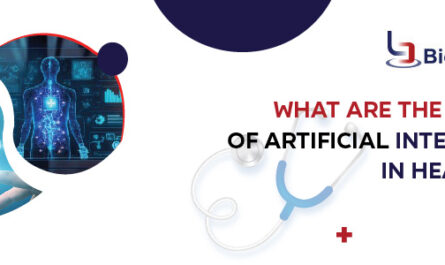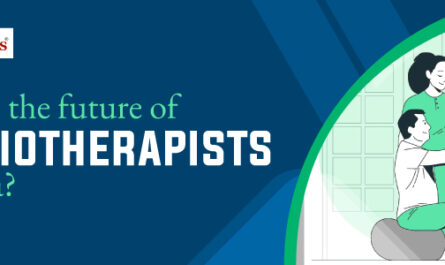As per artificial intelligence in healthcare PPT, AI has affected and impacted many industries, and healthcare is no exception. Nowadays, AI is useful in advanced patient care, drug development, customized medicine, and diagnostics. There is no doubt that Artificial intelligence in healthcare can unlock big opportunities for professionals and patients. But, there should be ethical and responsible use of AI in health systems. Questions about its responsibility and ethical implications come to the forefront.
In this article, we will discuss how responsible AI is in health care. Take a look!
Understanding The Algorithms That Train AI for Healthcare
AI works on some algorithms which make it more accurate and useful. Let’s find out the AI algorithms in healthcare.
- Supervised Learning – This algorithm is very useful for diagnosing disease. In this, AI is specially trained on labeled datasets. Based on training, the AI algorithms learn to make predictions based on input data.
- Unsupervised Learning – In these algorithms, AI is trained with unlabeled data to identify patterns and groupings. This helps in clustering patients based on similarities in their health records.
- Convolutional Neural Networks – Where image-related tasks are needed,CNNs are used. This AI algorithm is especially beneficial for medical imaging applications. They are expert in finding tumors in X-rays or MRIs.
- Natural Language Processing (NLP) – NLP algorithms process and analyze textual data, such as clinical notes, research papers, and patient feedback. This algorithm is used to train AI to find the cause of diseases, medication, symptoms, etc.
- Reinforcement Learning – Reinforcement learning is all about training an AI tool through trial and error. It includes feedback from actions taken. In healthcare, it helps optimize treatment plans and patient management strategies.
As healthcare continues to evolve, the responsible and effective application of AI algorithms will be essential in harnessing AI’s full potential.
How Responsible is AI in Healthcare?
Here are some of the responsibilities of AI in healthcare:
Accountability in Decision-Making
Artificial intelligence in healthcare is specially designed to assist doctors and nurses in making informed decisions, it is responsible for accountability. There is artificial intelligence in healthcare PPT free download that helps you understand various things. When you use an AI tool and it suggests a diagnosis or treatment plan, you should take responsibility for the outcome if you go with the AI suggestions. There should be the responsibility of the health professional who is using AI for diagnosis or treatment. There should be ethical frameworks to clarify the roles of AI tools, healthcare providers, and institutions in the decision-making process.
Never Neglect Human Oversight
No doubt that the new era of technology revolves around AI, but every healthcare provider needs to understand that AI can help you in treatment but can’t replace humans completely. Responsible AI involves ensuring that healthcare professionals remain actively engaged in the diagnosis, treatment, and other health process. Human oversight is essential to use AI responsibly within the context of every patient’s needs, clinical demands, and ethical values.
Helps with Collaboration and Education
When an AI tool is trained with proper data and collaboration with healthcare providers, it will be responsible in many ways. So, there should be a collaboration between AI developers, healthcare providers, and regulatory bodies. This should focus on creating strong guidelines, best practices, and educational resources for responsible AI use in the healthcare system. You need to train doctors and nurses with AI capabilities and limitations so that they can make informed decisions when in need.
Personalized Medicine
AI is helping clinics and doctors with personalized. Various AI tools analyze genetic information and patient histories to find the best-suited personalize medicine for them. This improves the efficacy of treatment while reducing the side effects. Thus, responsible AI in healthcare can help in finding the targeted medicine for every patient and improve clinical outcomes.
Analyze Medical Images
Responsible AI is reshaping the future of healthcare by analyzing medical images for early detection of cancers or tumors. This can help in improving survival rates.
So, this is how AI is responsible in many ways in the healthcare system. But, to use it we also need to be responsible. Keep in mind that no one tool can completely replace humans in the healthcare system. All current tools can improve the outcomes, save time, or help in early diagnosis, but they can never replace educated and experienced doctors.
Challenges of Implementing Responsible AI in Healthcare
AI has the potential to bring many benefits to healthcare by improving diagnosis, treatment, drug discovery, chatbots, etc. To fully realize these benefits, you need to understand the following challenges.
- Bias In The Data: You may feel the bias in AI system you are using in your healthcare.AI tools can be biased if they are trained on only one kind of data and unable to find solutions to other diseases. This may lead to inaccurate results.
- Regulation And Governance: Nowadays, there is a lack of government laws and regulations for the use of AI in healthcare. This can make it difficult for hospitals to understand how to use the technology responsibly.
- Data Breach and Privacy: The sensitive nature of healthcare data makes it a target for cyberattacks, raising concerns about data security. Therefore, when you use AI it can cause potential harm to patients’ data.
- Ethical Concerns: Ensuring patients understand how their data will be used by AI systems can be complex. Also, there are some healthcare providers who can misuse the AI tool, which may result in poor outcomes and wrong treatment.
How to Use AI Responsibly for Healthcare Systems?
AI Responsibility in healthcare means using it in a way that respects the profession and causes no harm to patients. It also means using ethical values and promoting human oversight to address concerns that will impact the responsible use of artificial intelligence in healthcare.
Transparency
The first thing that helps you use AI with responsibility is Transparency. You need to understand how AI works so you can make a wise decision whether to trust it or not.
Privacy
Make sure the AI tool you are using is safe and causes no harm to the patient’s private data. Make sure you collect and use data in a responsible manner.
Monitor and audit AI systems
Make sure you monitor and audit AI tools regularly. This will help to identify and address any potential problems, such as bias, accuracy, and security vulnerabilities. Get help from artificial intelligence in healthcare research paper PDF to use it responsibly.
Integration with clinical practice
You should focus on collaboration between AI tools and healthcare professionals rather than replacing them with any tool. Make sure doctors and nurses are properly trained to use AI in their practice.
Patient-centric approach
Opt for artificial intelligence tools that enhance patient care and improve health outcomes. You need to use AI to empower patients so that you can help them with the best suitable medicine and treatment.
To use AI ethically, you need to understand the Importance of artificial intelligence in healthcare. For this, you can read artificial intelligence in healthcare PDF.
Conclusion
Now, you know responsible and ethical use of AI is important for healthcare providers and patients. The right use of AI can take the healthcare system to the next level while making diagnosis easy and quick. Early detection of cancer using AI can be very beneficial for many who are suffering from big diseases. If you want to learn more about AI in medicine, then AI in Healthcare Conference 2025 is for you. Whether you are a student, scholar, researcher, doctor, nurse, or professional, this conference is for all.




